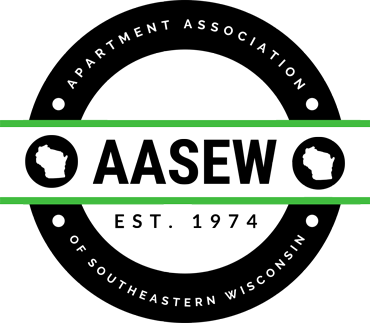Tristan is the Executive Vice President and shareholder with the law firm of Petrie+Pettit and focuses his practice in the area of landlord-tenant law representing landlords and property management companies throughout Wisconsin.
Call us: (414) 276-2850
New Landlords' Omnibus Bill Being Debated In Madison
Posted by Tristan R. Pettit, Esq. in Legislation, Act 143 (Landlord's Omnibus Law) / Comments
On February 13, 2012 2011 Senate Bill 466 (more commonly referred to as the Landlords' Omnibus Bill) was introduced by Senator Lasee and referred to the Committee on Insurance and Housing. A companion bill was also introduced in the Assembly - 2011 AB 561. A public hearing on the above bills was held on February 15, 2012.
The Landlords' Omnibus Bill addresses numerous issues affecting landlord-tenant relations in Wisconsin and if passed will greatly assist landlords.
The bill proposes the following:
1. Eliminates the ability of a municipality from enacting or enforcing any ordinance that imposes a moratorium on a landlord from evicting a residential or commercial tenant.
Such moratoriums have occurred in the past effectively preventing landlords from evicting tenants during the holiday season for instance.
2. Allows for the severability of all rental agreement provisions and prevents an entire rental agreement from being declared unenforceable against a tenant -- or void -- because it contains an unenforceable or void provision.
If passed this will effectively render the Wisconsin Supreme Court's decision in Bairl v. McTaggart moot.
3. Allows a landlord to immediately dispose of any property abandoned by a departed tenant.
Currently according to Wis. Stats. sec. 704.05(5) a landlord can choose one of three options with regard to a tenant's abandoned property, but all three involve a landlord jumping through hoops and/or holding the abandoned property for a period of time.
4. Requires a landlord to disclose to prospective tenants if there are any uncorrected building code violations in the rental unit.
5. Requires that a landlord provide a residential tenant with a standardized check-in sheet describing the condition of the property at the time of the tenant's check-in.
6. Requires that a landlord shall (i.e. MUST) recover damages for a tenant's failure to vacate after his tenancy has been terminated. The amount of damages shall be, at a minimum, double the rental value of the unit for the time that the tenant held over, but can be more.
Currently Wis. Stats. sec. 704.27 only says that a landlord "may" recover "holdover" damages.
7. Creates a new statutory section that allows a landlord to withhold the following from a tenant's security deposit: (a) tenant damage, waste or neglect, (b) unpaid rent, (c) utilities, (d) any other items listed in a Nonstandard Rental Provision document.
Currently the above is only contained in the Wisconsin Administrative Code ATCP 134.06(3) -- which is a regulation and not law.
8. Provides that if a tenant vacates before the end of his lease that a landlord will not have to return the tenant's security deposit or send the teanant a security deposit itemization letter until 21 days after the lease ends or 21 days after the unit is re-rented.
Currently per ATCP 134.06(2) the landlord must return the security deposit or security deposit itemization letter within 21 days of the tenant "surrendering" the rental unit. As this regulation is currently written there are some instances where a security deposit must be returned to a tenant that has broken a lease even though the tenant will be legally responsible for future rent but is not responsible for any rent within the 21 days after the tenant surrenders.
9. Requires a tenant to notify the landlord in writing of any repair or maintenance problem before reporting the problem to a building inspector, elected public official or code enforcement agency.
Currently some tenants are calling DNS or other building code enforcement agencies alleging that they told their landlord of a maintenance or health and safety emergency in their rental unit and that the landlord is not making the necessary repairs - when this is not the case . Tenants may do this in order to "get a landlord in trouble" with an enforcement agency or to avoid paying rent. As a result, some landlords are hearing about the maintenance issue for the first time when contacted by the building code agency. This provision will hopefully eliminate such "he said - she said."
10. If a landlord has filed an eviction action against a tenant for non payment of rent and the landlord accepts past due rent from the tenant after the eviction lawsuit was filed, the eviction may not be dismissed by the court solely because of the acceptance of rent.
Currently a landlord is in a catch-22 position. If a landlord accepts payment of late rent (either partial past due rent or the full amount after the "cure" period has ended) the landlord risks the court deciding that the landlord "waived" his right to proceed with the eviction. But if the landlord turns away past due rent offerred by the tenant after the "cure" period has passed, the landlord is essentially losing out on money owed to him that he will never see again.
Please be sure and call your state senator and state assembly person and urge them to vote in favor of the Landlord's Omnibus Bill.




